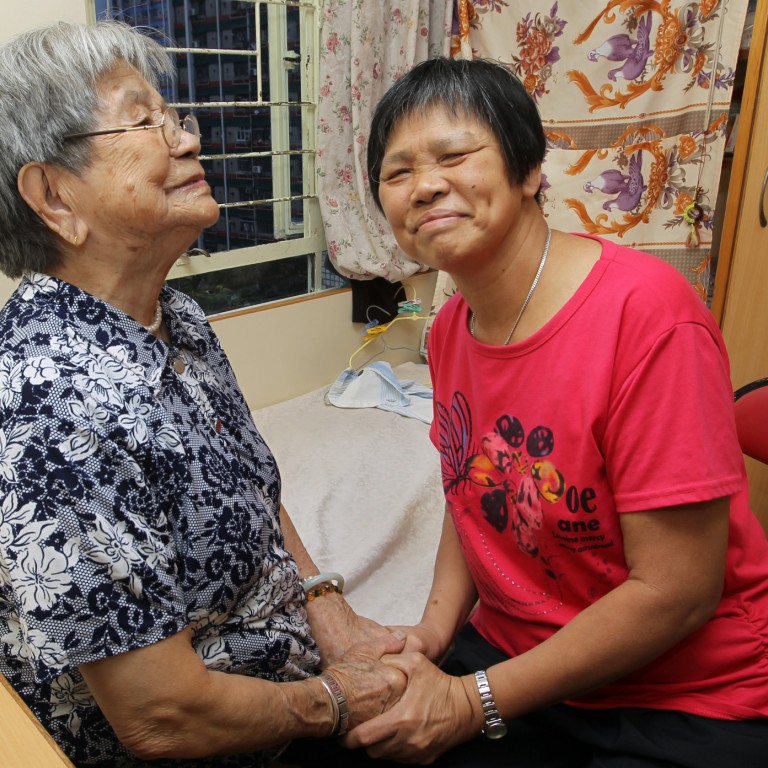
Helping Hand volunteer's errands of mercy
Helping others doesn’t have to be about grand gestures or large philanthropic projects.
It can be the little things that count.
In the case of Mak Kam-fung, a volunteer at a Helping Hand elderly home, it’s about being there for the residents on a daily basis.
Mak, 66, worked for Helping Hand, a charity dedicated to serving the needy elderly, for 15 years as a cleaner before becoming a volunteer.
The mother of six children and grandma of four found the life of leisure of a pensioner a little boring. “I don’t have to take care of the grandchildren,” she says, “and I was idle at home, so I thought I might as well help out here.”
And help out she does, in myriad ways which, says assistant officer-in-charge Ricky Ho Wing-sze, are a godsend to the full-time staff.
“Each activity that she does might be small,” she says, “but it really adds up, it frees us up to do the other things. So it really helps us and we greatly rely on her services.”
Mak volunteers at the Helping Hand Chuk Yuen (North), Jockey Club Housing for the Elderly. “I accompany them to the clinic to see the doctor, or go and get them food at the market. I sometimes help them change the bedsheets,” she says, listing off a few daily tasks.
“I also work as a kind of facilitator, I suppose. For example, we’ll be trying to put together a game of mahjong. They’re bored, so mahjong really helps to give them a bit of fun. So I’ll look around the corridors and rooms and try to pull enough people together.”
Established in 1978, Helping Hand was set up to rehouse elderly people living in squalid caged bed spaces. The charity now runs six homes for the elderly and only holiday centre for the elderly in Hong Kong.
Some of the homes cater to elderly people suffering from dementia. Others, like the one at Chuk Yeun, are self-care homes, where people over 60 who are fit and active live in a friendly atmosphere and share flats with kitchens and bathrooms.
For some, of course, it’s not where they anticipated being for their later years and it takes a bit of adjustment.
“I tell them: ‘oh, you know, even if you don’t feel this is home yet, you’ll get used to it,” says Mak. “I try to get them out of their little holes with outings and walks. I take them to performances and make sure they take part in other activities, to keep them active and positive.”
Helping Hand gets a government subsidy and the residents’ welfare payments, if they are entitled to them, go towards the cost of housing them. Helping Hand makes up the rest with charitable contributions. Once the elderly are in one of the homes, they are looked after for the rest of their lives.
“I often deliver the lunch and make the congee,” says Mak, adding that she feels that elderly people are generally respected in Hong Kong, although she does hear some sad stories. “Mostly from the women,” she says, “as they are more outspoken, and it’s usually as I’m taking them to the clinic. And they’ll tell me: ‘I’ve worked hard all these years but my children took all my money’.”
Chao Ho, 83, has been living at the home for 10 years. “Do I like living here? Of course. Why else would I have stayed here 10 years,” she says, not looking a patch on 83. Chao also helps take fellow residents to the clinic.
“It’s so good of her, all the errands she runs for us,” she says of Mak. “She’s superb, she just helps with anything,” and with 155 residents, there are probably plenty of small errands. “We respect her very much.”
Chao also helps with selling cookies.
Helping Hand’s fundraising Cookie Campaign, where cookies are sold in schools, is held in December.
